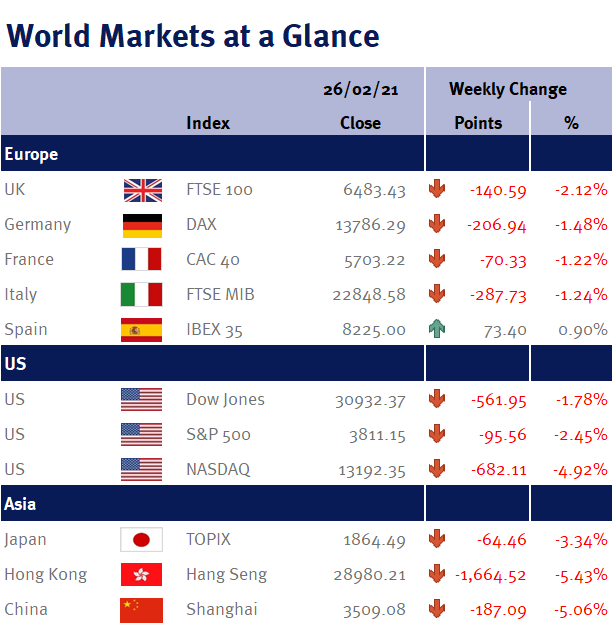Additionally, deviating from his fellow BoE policymakers, Andy Haldane, the BoE’s chief economist said that he expects inflation will rise sharply once the economy reopens and sees a “tangible risk” that UK inflation will become difficult to tame.
As a result, financial markets are now starting to expect interest rates to be increased in both the US and the UK in the next year or so.
Although our decades of investment experience has taught us to keep an open mind, we currently don’t see any reasons to change our view – and while outsized economic growth has historically tended to result in inflation, regular readers of our commentaries will know that this time around we expect the playbook to look very different. This is because the outsized GDP growth we will see over the coming year simply reverses the sharp economic downturn we experienced as a result of the coronavirus lockdowns and as such, we believe the underlying inflation pressures will remain muted.
However, as we have previously stated, we expect headline inflation will rise sharply in the coming months thanks to the distorted oil price, coupled with the reversal of the VAT cuts given to the hospitality sector – but as these are transient pressures, we don’t expect to see a sustained above target 2% inflation rate.
Additionally, while we are positive on the prospect for the global economic recovery, we believe that the employment market could be scarred for several years (just as it was after the 2008/9 global financial crisis) – and as a result of this labour market slack, we believe demand and inflation pressures will remain sufficiently suppressed to ensure it is a long time before central banks will have to even think about considering increasing interest rates. As such, we fully expect that this week’s equity market weakness will be quickly reversed.
Looking ahead to this week, our eyes will be focused on Rishi Sunak, the Chancellor of the Exchequer, as he delivers his Budget Statement on Wednesday (3 March 2021). Data wise, of most interest to us will be the weekly US jobless claims data on Thursday (4 March 2021) and the US employment data (non-farm payrolls; unemployment rate; participation rate; and average earnings) on Friday. Other data includes: US ISM (Institute for Supply Management); Eurozone CPI inflation; and Chinese PMI.
Investment Management Team


